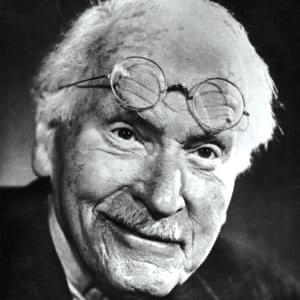Some time ago, we published feedback on the MBTI (Myers Briggs typology indicator). Remember, this is a tool based on research in psychology that helps to better understand how it works and that of others. There are 16 types of personalities with more or less important nuances depending on our education and the choices we have made in our lives. After reviewing the workshop's operation and the results obtained, here are the explanations from the professional, Antoine Ferté.
Faxinfo: How can you explain what is MBTI?
Antoine Ferté: The MBTI is a model that highlights areas of ease, natural trends which are areas in which we will be more efficient. And in contrast to the zones of effort, zones of the unknown, zones a little more difficult. This is the fundamental approach. The other really interesting aspect is that it's relevant. The 4 dimensions that are used really have an impact in everyday life. It is not peripheral, we are talking about things that happen constantly. The other important thing ... it's very easy to access, we don't put into play strong, loaded personal content. We are on behaviors that we have in everyday life, that our neighbors can see, that we can see. It is a model that has existed for a long time now, if it did not hold water, it would have been "dezinced", it would not have supported all the studies that have been done. It is an interesting tool in a process of self-knowledge. We remain what we are but we live differently and we live others differently too.
FI: What is the origin of the MBTI?
 AF: The theoretical studies are based on the work of Jung who is a great thinker of the late 19th, early 20th and who moved away from Freud quite quickly. Freud had a vision too centralized on the sexual life which should, according to him, condition everything. Jung started studying ethnology on primitive peoples, he put his finger on very deep notions, archetypes and he released a book which becomes the reference, "Types of personality" in the 20s. But finally , he is a researcher, you just have to read his books or his autobiography to understand that you have to follow him!
AF: The theoretical studies are based on the work of Jung who is a great thinker of the late 19th, early 20th and who moved away from Freud quite quickly. Freud had a vision too centralized on the sexual life which should, according to him, condition everything. Jung started studying ethnology on primitive peoples, he put his finger on very deep notions, archetypes and he released a book which becomes the reference, "Types of personality" in the 20s. But finally , he is a researcher, you just have to read his books or his autobiography to understand that you have to follow him!
FI: We weren't yet on the MBTI tool?
AF: Not at all ! You could almost say it was basic research. The luck is that Madame Briggs who is an American contemporary of Jung resumed her work and in a pragmatic approach wanted to make it a tool, an indicator. She developed this with her daughter, Isabelle Briggs-Myers and it gradually became a tool. They developed a questionnaire by doing a lot of studies on how to ask the questions and the statistical links between the different questions. It was pushed very far and today it is mainly conveyed by a questionnaire which is the basis. It has gradually become a relatively simple, fairly impersonal tool, you don't have to tell your life story and it's really effective, that's why companies started to take an interest in it.
FI: It was my next question. What are the applications of the MBTI tool?
AF: There are companies that take the MBTI almost as being the cultural basis of the company because it gives a common language. Employees all go through knowledge internships of their own, in the interests of efficiency. People are well, well in their place, they know their limits, their faults, their weak points, they are more efficient. It is in this context a reference tool in the event of difficulties between two people. It can also be used in a team building approach, team cohesion. This is extremely effective because in a group, people should not be all the same. If they are all the same, it's a group that will have big strengths but also very big weaknesses. There are personalities who are atypical and instead of spontaneously turning them into the ugly duckling, the "guy" who is regularly laughed at because he is different, the MBTI allows you to show what it brings that is different and to what extent it gives strength and coherence to the whole group. It is used in team building approaches either because the problem already exists so you have to manage conflicts, or because these are people who will do things together and there they know each other, they value each other, that gives added strength to the group. Afterwards, there may be purely individual interests, professional orientation knowing that, for me, it is a tool which is difficult to use before the age of 18-20 years. But orientation problems do not arise only between the ages of 16 and 18! If we are oriented towards positions that put too much into play our areas of effort, we risk getting bored, getting tired and never being good. And to have the feeling that one is not in his place. After that, you should know that there is no professional activity that does not involve at least part of our areas of effort. The MBTI gives meaning to the effort zone, we do it well because it grows us because the effort we make is a voluntary, conscious effort that feeds us in return, which gratifies us and we know that we are in the process of discovering a world that is not ours… that makes the effort worthwhile. Weariness happens when we do things that are too far from us. You should know that the two basic functions that constitute us are for life. Even if we discover something else, even if we weigh, even if we mature, it remains our two pillars of personality, our two strengths, which works permanently.
FI: We can clearly see the professional application. And on a personal level, how does it help people?
AF: It's like all self-knowledge steps, it gives information and an understanding about oneself so inevitably we become someone different, our level of consciousness evolves, we take a distance from ourselves . The mechanisms are already less mechanical. Even if we have basic trends that work well, they are mechanical at the start. If we do not put light, understanding, they are the ones driving, it is not us. This is the fundamental approach of all the self-knowledge tools. What is specific with MBTI is that it becomes very easy to know the characteristics, at least in part, of the people with whom we live. In a couple, for example, that's for sure.
FI: Can it help to avoid a break, for example?
AF: Avoid, a separation, we can not go that far. But for people who live well together, it will improve their life because even if they live well together, there are necessarily some aspects that creak and this is also an aspect that I talk about during the training. Me, I do not put forward the concessions and often in the life of couple, one says that it is necessary to make some. But what are the concessions? Somehow, it's to deny yourself to allow a couple to exist. Is it fair to deny yourself, either? And up to what point? Then, is it balanced? It's difficult for it to be 50/50. While in fact, my vision of life is to be to the maximum, in everything we do in the right way and not in the concession. Now, I'm not giving up spending time with you. I'm just ok with it. It's just. In the couple it's the same. If the couple holds on because they have to make concessions, the couple is no longer fair. The MBTI allows everyone to be who they are. Correctness is being what we are by putting awareness and light into it. If we are what we are in pure and hard mechanicity, well we go overboard. “We are as we are” and it's up to others to do with it. This is not fair. While by shedding light on yourself, you necessarily have possibilities of action on yourself. We know that even for ourselves, there are aspects that are excessive because we have feedback, boomerangs. So we have an interest in balancing ourselves. And then the other aspect is that we value the other. We are in a process of dialogue. It's the dialogue that changes things, it's not the nervousness. It is not a question of concession, it is rather, we move forward together. There is one who makes an effort but this effort enriches him and the other becomes less fussy. We have established a dialogue, there are common elements of understanding. The problem in the couple is dialogue. If it's all about the mood, it gets complicated.
FI: Can we imagine that it has a use in parent / child relationships?
AF: Yes of course ! As a parent, it is certainly a tool for understanding his children and for better education, to accept to recognize the tendencies of his child, to favor them. In any case, not to oppose it, not to harm. As a parent, we necessarily have our ideas about what is good, but our ideas are our own. The MBTI gives another view, “I'm an extrovert, he's an introvert. His needs are not the same as mine ”. You have to accept that. The need for withdrawal, for example. You have to accept ... And not to stay in a limited scheme of what normal behavior is. Normal behavior is not an average, it is what is right for you. This is normal behavior.
FI: Is it possible to use the tests found on the internet? Are they reliable?
AF: I tested one but the problem is that I decode the questions but there are tests on the internet which are good. There is a site called 16 personalities (https://www.16personalities.com/) which is fair enough.
FI: You are there until the end of July. Can people contact you?
AF: Yes, but it has to be in a group. 10-12 people is good. Otherwise people can find out on the internet but what is interesting is the group dynamic. Something is happening. People talk, what they say I can't make it up. People have expressed very well what is going on in them, better than I could ever have done (during the training which took place in Saint-Martin. Editor's note). Someone who talks about their tendency, if not mine, always talks about it better than I do. And there, there is a dynamic group effect which sets in and which is really interesting. It's less of a theory. Afterwards, there are some very good books. The books of Pierre Cauvin and his friend Geneviève Cailloux are very good. I was trained by them, it is the reference.
But I want to avoid the “Marie Claire effect”. I do a test, I get an info and poof! I am like this ! Personal development requires awareness. _NB
8,019 total views





No comments